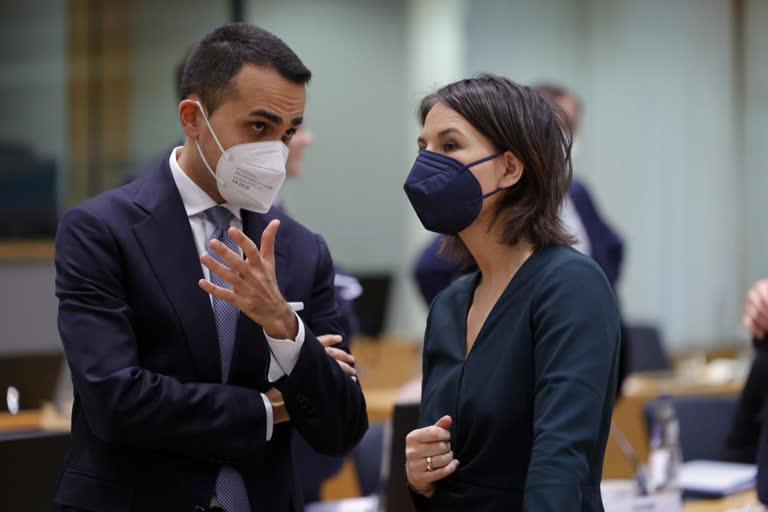Brussels: European Union countries on Monday accused Russia's military of committing war crimes in Ukraine, but appeared unlikely to target the country's energy sector with sanctions soon despite a clamor across Europe for those responsible for attacks on civilians to be held to account. With civilian deaths mounting in the besieged Ukrainian port city of Mariupol, German Foreign Minister Annalena Baerbock highlighted the increase in Russian attacks on civilian infrastructure, including hospitals and theaters.
The courts will have to decide, but for me these are clearly war crimes," Baerbock said. EU foreign policy chief Josep Borrell, who chaired a meeting of the bloc's foreign ministers in Brussels, said that what's happening in Mariupol is a massive war crime. Destroying everything, bombarding and killing everybody in an indiscriminate manner. This is something awful.
The encircled southern city on the Sea of Azov has seen some of the worst horrors of the war. City officials say that at least 2,300 people have died in the siege, with some buried in mass graves. The International Criminal Court in the Netherlands is gathering evidence about any possible war crimes in Ukraine, but Russia, like the United States, doesn't recognize the tribunal's jurisdiction.
Irish Foreign Minister Simon Coveney said his country is certainly open to other mechanisms for accountability in terms of the atrocities that are taking place in Ukraine right now. Coveney said Russia's invasion of Ukraine "is driving a fury across the European Union within the public as to why can't we stop this. He said Europeans want people held to account for the decisions taken and the brutality that we have seen.
Coveney expects that a new round of EU sanctions will be drawn up soon, possibly by the time U.S. President Joe Biden arrives in Brussels on Thursday for talks with European leaders at NATO and EU headquarters. Notorious for their often slow responses, EU nations have rallied since the invasion began on Feb. 24 to slap sanctions on hundreds of people, including Russian President Vladimir Putin, senior ministers and pro-Kremlin oligarchs.
